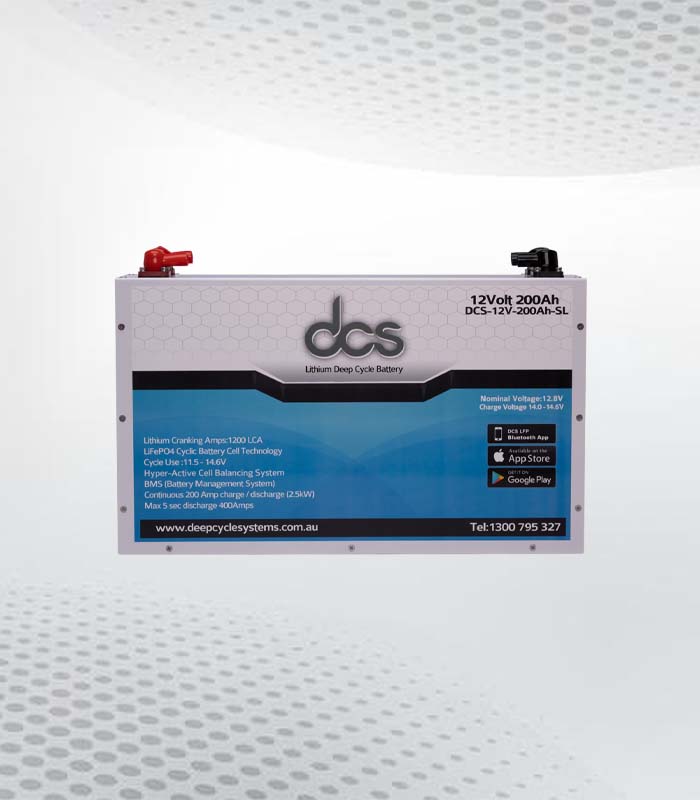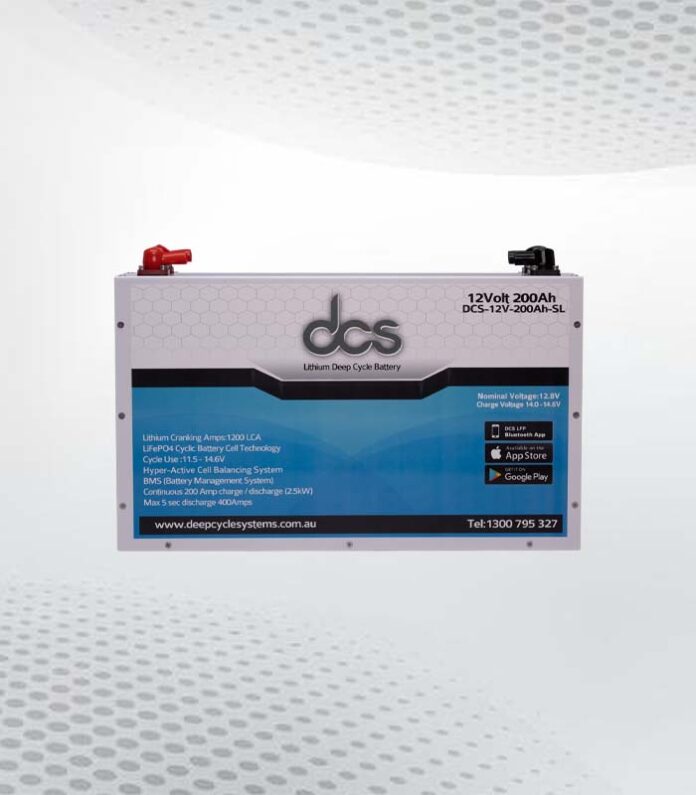Are you tired of dealing with frequent power cuts? Do you want to reduce your electricity bill and become more environmentally friendly? Look no further than the lithium solar battery. This revolutionary battery technology has been gaining popularity in recent years for its numerous benefits. From providing uninterrupted power during blackouts to reducing reliance on traditional electricity sources, a lithium battery is a game-changer in the world of energy storage. Say goodbye to power cuts and hello to a more sustainable future with the help of a lithium battery.
Understanding the Basics of Lithium Solar Batteries
Lithium solar batteries may seem like complex technology, but understanding the basics is crucial to harnessing their full potential. At their core, lithium solar batteries are rechargeable energy storage devices that combine lithium-ion technology with solar power. Unlike traditional lead-acid batteries, lithium solar batteries offer several key advantages, making them a preferred choice for residential and commercial use.
One important concept to grasp is that lithium solar batteries use chemical reactions to store and release electrical energy. This means that when solar panels produce excess energy during the day, it can be stored in the lithium battery for later use, such as during nighttime or cloudy days. This process is highly efficient, resulting in less energy wastage compared to other battery types.
Additionally, it is crucial to understand the capacity and voltage of lithium solar batteries. Capacity refers to the amount of energy a battery can store, while voltage measures the electrical potential. These factors determine how much energy can be stored and the power output of the battery.
Unveiling the Numerous Advantages of Lithium Solar Batteries
Lithium solar batteries are not just a trendy buzzword, they offer a multitude of advantages that make them an excellent choice for energy storage. First and foremost, these batteries are incredibly efficient. They have a high energy density, which means they can store a significant amount of energy in a small space. This allows for more energy to be stored and used when needed.
In addition to their efficiency, lithium solar batteries are also known for their long lifespan. Unlike traditional lead-acid batteries that need frequent replacements, lithium batteries can last for many years with minimal maintenance. This not only saves you money in the long run but also reduces waste and environmental impact.
Furthermore, lithium solar batteries are incredibly versatile. They can be used in a wide range of applications, from residential homes to commercial buildings. Their lightweight and compact design make them easy to install and integrate into existing solar systems.
Solar Lithium Battery – A Reliable Solution for Power Cuts
Lithium solar batteries are not only a reliable source of electricity but also a game-changer when it comes to dealing with power cuts. With their ability to store energy from solar panels, lithium solar batteries ensure that you have a continuous power supply even during blackouts or grid failures. By investing in a solar lithium battery system, you can say goodbye to the inconvenience and frustration of power cuts.
You can have peace of mind knowing that you will have uninterrupted power whenever you need it most. Whether it’s keeping your home lit and your appliances running or ensuring that your business operations continue without interruptions, a lithium battery is a reliable solution that you can count on.
No longer do you have to worry about spoiled food in the refrigerator, disrupted work, or safety concerns during power outages. With a lithium battery, you can enjoy a reliable and efficient power supply that keeps you connected and productive, regardless of the external circumstances. Don’t let power cuts disrupt your life. Invest in a lithium battery and experience the peace of mind and reliability it brings.
Making the Switch – How to Successfully Implement a Lithium Battery System in Your Home
Switching to a lithium battery system in your home is a smart and sustainable decision. Not only will it help you save money on your electricity bills, but it will also reduce your reliance on traditional energy sources and contribute to a cleaner environment. Implementing a lithium battery system may seem overwhelming at first, but with the right approach, it can be a seamless process.
 The first step Is to assess your energy needs and determine the size of the system required for your home. Consider factors such as your average energy consumption, the number of appliances you need to power, and your desired level of energy independence. It may be helpful to consult with a professional to ensure you choose the right system for your specific requirements.
The first step Is to assess your energy needs and determine the size of the system required for your home. Consider factors such as your average energy consumption, the number of appliances you need to power, and your desired level of energy independence. It may be helpful to consult with a professional to ensure you choose the right system for your specific requirements.
Next, you will need to find a reputable supplier or installer who can guide you through the installation process. They will help you select the appropriate lithium battery system and ensure it is installed correctly. Make sure to do your research and choose a supplier with experience and positive customer reviews.
Once the system is installed, it’s important to familiarize yourself with its operation and maintenance. You may need to make adjustments to your energy consumption habits and be mindful of optimizing solar energy generation. Regularly monitor the battery’s performance and follow any maintenance recommendations provided by the manufacturer.
Long-term Benefits and Environmental Impact of Lithium Solar Batteries
Lithium solar batteries offer not only immediate benefits but also long-term advantages for both users and the environment. One of the key long-term benefits is their extended lifespan compared to traditional lead-acid batteries. This means that you can enjoy uninterrupted power for many years without the hassle of frequent replacements, resulting in cost savings and reduced waste.
In addition, lithium solar batteries have a positive environmental impact. By reducing reliance on traditional electricity sources, these batteries contribute to a cleaner and greener future. The use of solar power to charge lithium batteries helps reduce carbon emissions and dependence on fossil fuels. This is a crucial step towards mitigating climate change and creating a sustainable energy landscape.
Moreover, the lightweight and compact design of lithium solar batteries make them easier to transport and install. This means they can be easily relocated or integrated into existing solar systems, offering flexibility for users and reducing the need for extensive modifications.
The Future of Energy Storage: Innovations in Lithium Battery Technology
As technology continues to advance, so does the world of energy storage. The future of energy storage lies in the innovations of lithium battery technology. Scientists and researchers are constantly working on improving lithium battery technology to make it even more efficient and reliable.
One exciting area of development is the improvement of battery capacity and energy density. This means that lithium solar batteries will be able to store even more energy in a smaller space, allowing for longer periods of power supply without the need for frequent recharging. Additionally, advancements in battery materials and construction are making lithium batteries even more durable and long-lasting, reducing the need for replacements.
Another area of focus is the development of faster and more efficient charging methods. Researchers are working on ways to optimize the charging process of lithium solar batteries, making it even quicker and more convenient for users. This will further enhance the usability and practicality of lithium battery systems.
Furthermore, there is ongoing research into the integration of lithium solar batteries with other renewable energy sources, such as wind and hydro power. This integration will create a more robust and reliable energy storage system, allowing for a consistent power supply regardless of the weather conditions or time of day.
FAQs
Q: How do lithium solar batteries work?
A: Lithium solar batteries use chemical reactions to store and release electrical energy. They can store excess energy produced by solar panels during the day for use during nighttime or cloudy days, ensuring a continuous power supply.
Q: What is the lifespan of a lithium solar battery?
A: Lithium solar batteries have a significantly longer lifespan compared to traditional lead-acid batteries. With proper maintenance, they can last for many years, saving you money in the long run.
Q: Are lithium solar batteries safe?
A: Yes, lithium solar batteries are safe when used and maintained properly. They have built-in safety features, such as thermal controls and overcharge protection, to prevent any potential hazards.
Q: Can lithium solar batteries be used off-grid?
A: Yes, lithium solar batteries are an excellent solution for off-grid applications. They can store energy from solar panels and provide a reliable power source in remote locations or during emergencies.
Q: Can lithium solar batteries be recycled?
A: Yes, lithium solar batteries can be recycled. They contain valuable materials that can be reused, reducing waste and minimizing environmental impact.
Conclusion
In conclusion, the lithium solar battery is a game-changer in the world of energy storage. With its numerous benefits, it offers a reliable and sustainable solution to power cuts and high electricity bills. The combination of lithium-ion technology with solar energy results in an efficient and versatile battery that can be used in residential homes, commercial buildings, and even off-grid applications.

